South Africa is one of the most exciting wine regions in the world right now because it has so much untapped potential. Perhaps you’ve had a good spicy Pinotage at one point. But did you know that the greatest amount of Chenin Blanc—one of France’s most elegant white grapes—is actually planted in South Africa? Also, you might not be aware that Fair Trade and sustainable farming are strong movements in the South African wine industry. In part, South African wine is relatively under the radar due to the fact that during Apartheid, many nations boycotted the country. This of course held back all of its industries, and the post-Apartheid country as a whole is making strides to catch up. Wine is definitely one of the more forward-thinking sectors in the country right now. That’s why 32-year-old Mika Bulmash, who has devoted her energies to importing responsibly-made, small-production South African wines into the U.S., is someone to know.
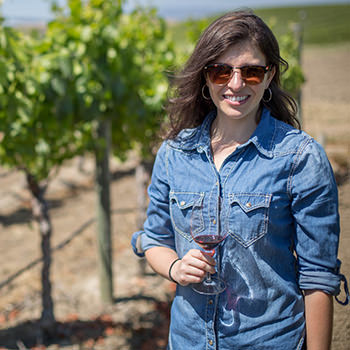
After beginning her career in international development in Washington D.C., Bulmash felt the calling to explore the world of wine. She went to work a harvest in South Africa in 2011, curious not only about grape farming but also winemaking in the post-Apartheid context. She worked at a large-scale winery and at a smaller producer, Bosman Family Vineyards, both in the lesser-known appellation of Wellington. At Bosman, Bulmash was impressed not only by the quality of the wine itself, but the efforts that the winery was making toward social justice. The Bosman winery has earned recognition for its unique approach to Fair Trade—something South African wine is becoming known for, yet which is often easier for larger wineries to practice for economic reasons. For Bosman, treating workers correctly means providing housing, as well as giving them actual ownership in the company, and decision-making powers. Most of these workers, as you might expect, come from South Africa’s “previously disadvantaged” demographics—as in, non-white people. After this experience, Bulmash made a decision to commit to bringing South African wine to the U.S., with a focus on small, responsible producers and female winemakers. Over time and with a successful Indiegogo fundraiser that raised over $26,000, she founded her importing and sales company Wine For the World.
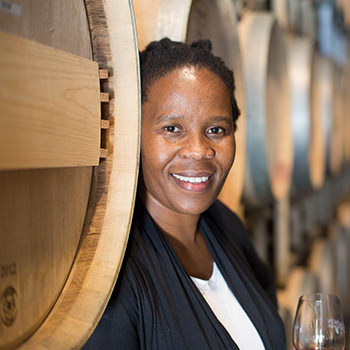
Wine may actually be one of the best ways for South African society to move forward from its history. For example, take Ntsiki Biyela, who after finishing high school in KwaZulu-Natal, in Eastern South Africa, was accepted into a fellowship that allowed her to study oenology. Before this, she hadn’t even tasted wine. Now she’s become South Africa’s first female black winemaker, and within almost no time, her wines have earned accolades. Biyela’s wines, which are under the label Stellekaya are “expressive, spicy, and big,” says Bulmash, pairing well with Biyela’s own bold personality.
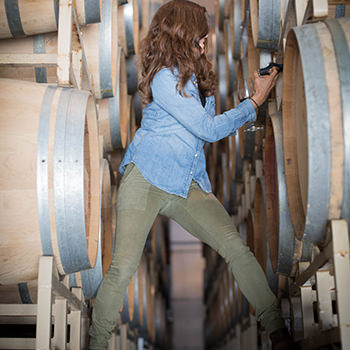
And one of Bulmash’s most exciting projects through her importing company is a collaboration between Biyela and Helen Keplinger, a well-known Napa Valley winemaker and consultant, connecting two female winemakers in order to create fantastic wine. It’s projects like these that provide an interesting example of a passion for wine coinciding with social entrepreneurship.
Check out these South African wines imported by Wine For the World. All can be purchased online, here.
De Bos “47 Varietal” Rosé
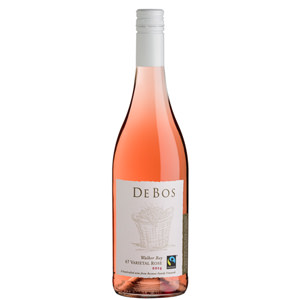
This is a super interesting rosé—savory and complex! It’s mostly made from the Southern French variety Cinsault, but—as the name implies—also features a host of other grape types, all from the same plot of land. Du Bos is a new label from Bosman Family Vineyards, and the grapes for this wine come from the Walker Bay appellation, on the Southern Cape where the climate is cooler. The spicy nose on this wine is amazing, and it’s ideal for pairing with all sorts of food, from charcuterie to pizza to chicken stir-fry.
De Bos Sur Lie Chenin Blanc
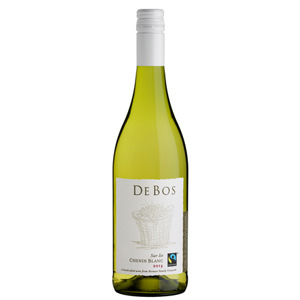
South Africa has the most Chenin Blanc planted of all the world’s wine regions, and this bottling from Bosman is a great example of how elegant and complex it can be. This wine is aged “sur lie” for three months, meaning the fermented juice is kept in contact with the dead yeasts and skins, helping it to develop texture and body. The nose is full of white flowers and salty ocean air, the palate is fruity and mineral, and the finish is citrus-laden. Considering that this wine is about $18 retail, it’s an incredible value.
Stellekaya “Hercules” 2009
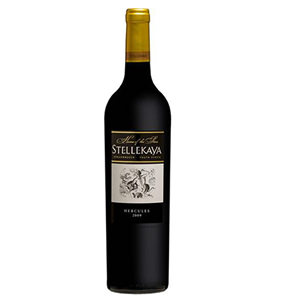
This full-bodied red wine from Ntsiki Biyela is a blend of mostly the Italian grape Sangiovese, with about 9 percent Cabernet Sauvignon, aged 24 months in French oak barrels. The grapes come north of the Stellenbosch appellation, not far from Cape Town in Western South Africa. It’s a balanced wine, displaying pure fruit, with soft tannins. This wine would be wonderful with lamb or steak, or a rich mushroom risotto.
Keplinger / Biyela, Red Collection No. 1, 2012
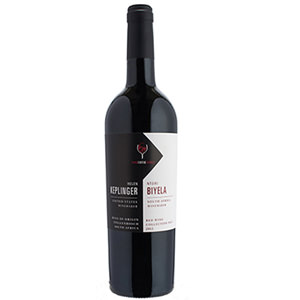
For their collaboration line, Keplinger and Biyela make small quantities of a Chenin Blanc, and this red blend, consisting of Cabernet Sauvignon and Sangiovese, with a bit of Malbec and Merlot, all from third-party certified socially and environmentally responsible vineyards Stellenbosch. It’s a fruity and approachable wine, soft and silky with low tannins, and versatile in terms of food pairings.
